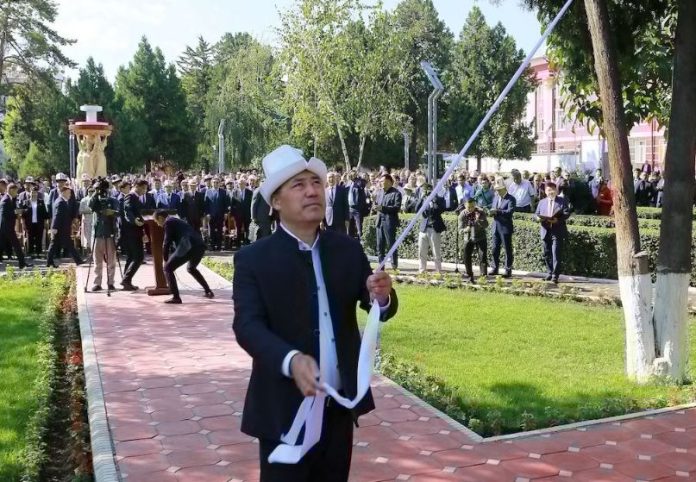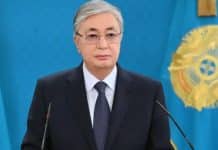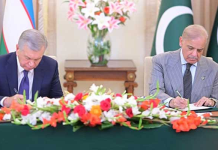Bishkek, Sept 29: In more evidence of the hollowing out of judicial independence in Kyrgyzstan, lawmakers voted by a sweeping majority on September 28 to permit the president to overturn Constitutional Court rulings deemed to contradict “moral values.”
Consideration of the legislation had not been planned, but the vote was placed on the agenda as a matter of urgent business by Almazbek Abytov, the presidential envoy to the Jogorku Kenesh, as the one-chamber legislature is known. The surprise move wrongfooted any activists or lawmakers who might have been inclined to mobilize opposition to the provision.
Abytov was abetted in this feint by members of the catspaw factions that now dominate a chamber that is today just a pale version of Kyrgyzstan’s once-lively legislature. These included Eldik, Ishenim, Yntymak, as well as Ata-Jurt Kyrgyzstan and Mekenchil, a pair of parties with close links to President Sadyr Japarov and his closest ally, security services chief Kamchybek Tashiyev.
One of the liveliest supporters of this legislation has been Nadira Narmatova, an Ata-Jurt Kyrgyzstan MP who has positioned herself as a champion of would-be traditionalism and an opponent of Western values.
“This is a law necessary for our state. We need to live according our traditions,” Narmatova said.
Narmatova alluded further in her remarks to the legal case that ostensibly triggered this development. In July, feminist activist Altyn Kapalova won what appeared at the time like a mixed legal victory when she managed to persuade the Constitutional Court to decree that Kyrgyz citizens would be permitted to adopt their mother’s name to form a matronymic. The custom until then was one originally adopted from Russia, wherein children are given a patronymic – the name of their father – as a second name.
Shortly after that ruling was handed down, Tashiyev, the powerful security services chief, took to social media to voice his objection. Japarov expressed a similar position, prompting loyal lawmakers to act hastily.
An initial version of the bill was adopted on September 6, but then submitted to a review amid the objections of a few MPs. Amendments put forward varied in nature.
Dastan Bekeshev, one of the last remaining deputies in the Jogorku Kenesh to consistently make a point of vocally opposing the government, argued that giving the president powers to arbitrarily overrule the courts would fatally undermine the judiciary. Other colleagues were not as bothered that nebulously conceived notions of morality could be used to counter court rulings. Instead, they suggested that this power should also be bestowed upon prosecutors and lawmakers like themselves, among others.
It was only when the bill was placed on the agenda without warning on September 28 that it became clear that the parliament’s constitutional legislation committee had dismissed all proposed changes.
The second and then third and final vote proceeded without debate. The bill was approved by 65 of out 70 MPs in the third vote.
The most eye-catching aspect of the legislation is the one that will allow Japarov, who was the person who formally advanced the change to the law in the first place, to overturn decisions made by the Constitutional Court if they go against “moral values and the social conscience of the people.”
It will also allow for rulings to be nixed in the event of amendments to the constitution or if previously unknown circumstances come to pass.

















